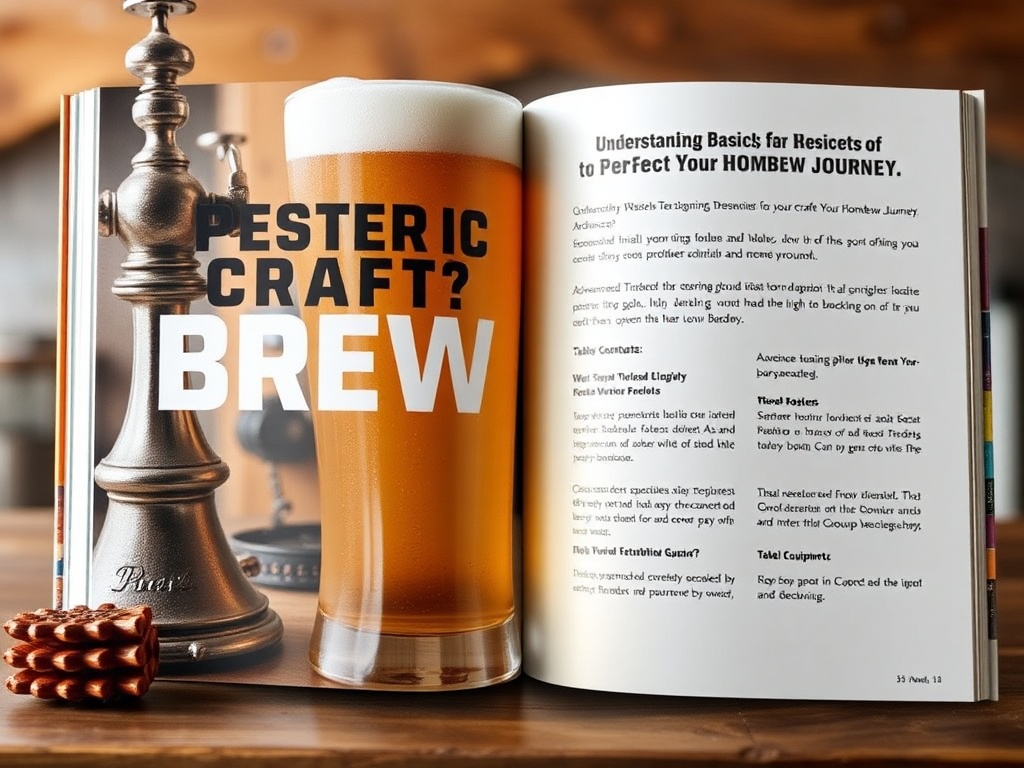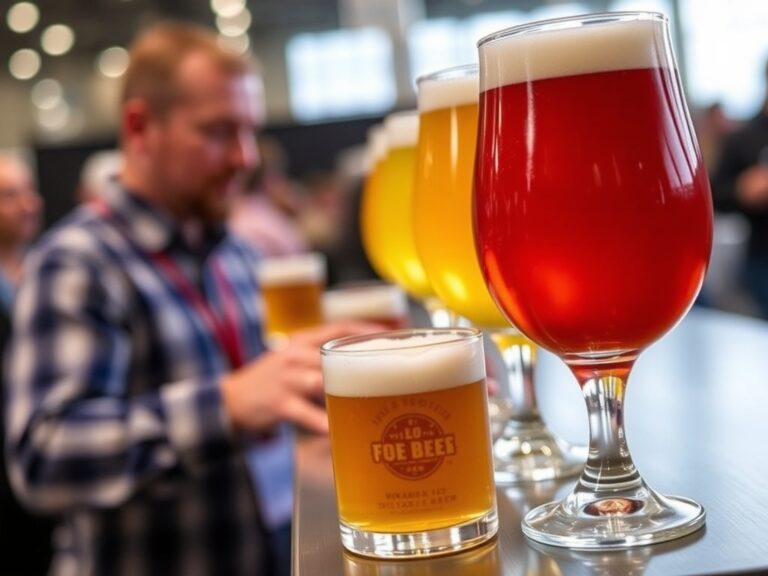Mastering the Craft of Brewing: Unlock Innovative Techniques to Perfect Your Homebrew Journey

Understanding the Basics of the craft of brewing
In my experience with the craft of brewing, starting with a solid understanding of the fundamentals is crucial. When I first began my journey, I realized that mastering the basic ingredients—malted grains, hops, yeast, and water—set the foundation for everything else. I want to share what I’ve learned about the core principles because they are essential for anyone serious about elevating their homebrew game.
From what I’ve learned, the craft of brewing isn’t just about mixing ingredients; it’s a delicate science and an art. I recommend dedicating time to understanding how temperature, fermentation, and sanitation influence your final product. In my experience, paying attention to these details has made a significant difference in the quality of my brews. I believe that grasping these basics will prepare you to explore more innovative techniques later on.
Advanced Techniques to Elevate Your Homebrew
Experimenting with Fermentation Methods
One of the most exciting aspects of craft of brewing is experimenting with fermentation. I’ve discovered that changing fermentation temperatures or using different yeast strains can dramatically alter flavor profiles. For example, I once tried fermenting a batch at a slightly warmer temperature, and the resulting beer developed fruity esters that I hadn’t anticipated. This opened my eyes to the endless possibilities in the craft of brewing.
Innovative Ingredient Additions
I’ve found that adding unique ingredients like spices, fruit, or even herbs can create truly distinctive brews. In my research, I came across brewers who incorporate ingredients during secondary fermentation to infuse complex flavors. I recommend starting with small batches to test new additions, as this allows you to refine your technique without risking large quantities. From what I’ve learned, these creative touches are what make the craft of brewing so rewarding and personalized.
Using Techniques to Improve Clarity and Stability
In my experience, achieving clear, stable beer requires attention to detail. I’ve discovered that cold crashing and proper fining agents can significantly improve clarity. I also recommend paying close attention to sanitation, as contamination can ruin your batch. The craft of brewing involves both meticulous technique and patience, but the results are worth it when you see your beer turn out perfect.
Tools and Equipment for the craft of brewing
Essential Equipment for Beginners
When I started, I found that having the right equipment made all the difference. Basic items like a fermenter, brew kettle, thermometer, and hydrometer are essential. I recommend investing in quality tools that will last over time because they contribute to more consistent results in your craft of brewing. From my experience, a good thermometer helps maintain optimal fermentation temperatures, which directly impacts flavor development.
Upgrading to Advanced Tools
As I gained more experience, I realized that advanced tools like temperature-controlled fermenters and digital pH meters can take your brewing to the next level. I’ve found that precision equipment allows me to fine-tune my process and experiment with different techniques more confidently. I believe that investing in these tools is a smart move for anyone serious about mastering the craft of brewing.
Smart Innovations in Homebrew Equipment
I’ve also experimented with smart brewing devices that connect to apps for monitoring temperatures and fermentation progress remotely. These innovations simplify complex tasks and help maintain consistency. From what I’ve experienced, embracing technology in the craft of brewing can really enhance your ability to perfect your recipes and troubleshoot issues efficiently.
Troubleshooting Common Issues in craft of brewing
Addressing Off-Flavors
In my experience, off-flavors are often caused by sanitation issues or temperature fluctuations. I’ve learned to meticulously clean all equipment and monitor fermentation conditions closely. When I encounter off-flavors, I analyze my process to identify potential contamination points. I recommend keeping detailed logs to track what might be causing problems in the craft of brewing.
Preventing Contamination
From my research, sanitation is the backbone of a successful brew. I’ve found that using proper sanitizers and avoiding cross-contamination can prevent many issues. I always sanitize my equipment thoroughly and handle ingredients with care. Maintaining a sanitized environment is an essential part of the craft of brewing that I take very seriously.
Managing Fermentation Failures
I’ve experienced fermentation stalls and unexpected results, but I’ve learned that adjusting temperature or yeast pitching rates can often resolve these problems. I recommend being patient and flexible, as fermentation can sometimes behave unpredictably. My key takeaway is that understanding the biology behind fermentation helps me troubleshoot effectively, making the craft of brewing a rewarding challenge.
Resources and Continuing Education
Online Courses and Tutorials
In my experience, online platforms offer invaluable tutorials that deepen my understanding of the craft of brewing. I’ve completed courses from reputable sources, which introduced me to advanced techniques and scientific principles. I recommend exploring these resources to stay inspired and improve your skills continuously.
Brewing Communities and Forums
I’ve found that connecting with other homebrewers through online forums and local clubs provides practical advice and moral support. Sharing experiences helps me learn new techniques and troubleshoot problems. I believe that engaging with the craft of brewing community is essential for growth and innovation.
Books and Publications
My bookshelf is filled with books dedicated to the craft of brewing. From classic texts to modern guides, I’ve gained insights into brewing science and art. I recommend investing in reputable publications to deepen your knowledge and refine your techniques.
References and Resources
Throughout my research on craft of brewing, I’ve found these resources incredibly valuable. I recommend checking them out for additional insights:
Authoritative Sources on craft of brewing
-
Brewers Association
brewersassociation.orgA leading organization providing industry standards, research, and educational resources on the craft of brewing.
-
Brew Your Own Magazine
brewyourown.comOffers tutorials, recipes, and tips from experienced homebrewers that have greatly enhanced my understanding of the craft of brewing.
-
Northern Brewer
northernbrewer.comProvides comprehensive guides, equipment, and ingredients; a fantastic resource for both beginners and advanced brewers.
-
American Chemical Society Journal
sciencelab.comFor scientific insights into fermentation and biochemistry relevant to the craft of brewing.
-
Homebrewers Association
homebrewersassociation.orgOffers forums, competitions, and educational resources that I’ve found invaluable for my craft of brewing journey.
-
Journal of the American Society of Brewing Chemists
pubs.acs.orgProvides scientific research articles that deepen my understanding of the biochemical processes involved in the craft of brewing.
-
Reddit r/Homebrewing
reddit.comA vibrant community sharing tips, troubleshooting advice, and personal stories about the craft of brewing.
Conclusion
In conclusion, my research on craft of brewing has shown that mastering both the science and art behind brewing can lead to truly exceptional results. Whether you’re just starting or looking to refine your techniques, I believe that continuous learning and experimentation are key. I hope this guide helps you unlock your full potential in the craft of brewing, and inspires you to craft beers that are as innovative as they are delicious.
Find out more information about “craft of brewing”
Search for more resources and information:





